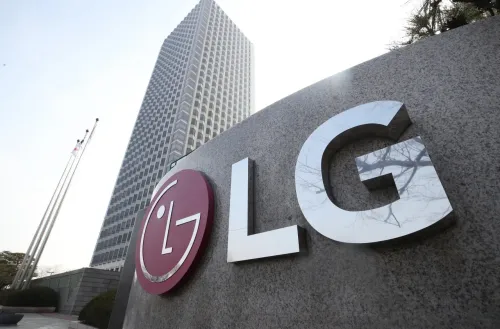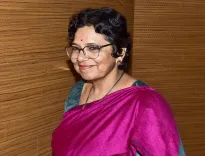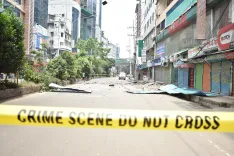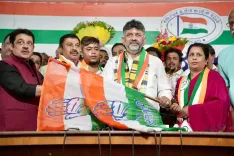What Did Vice President C. P. Radhakrishnan Say About Rotary International's Impact on Health and Literacy?

Synopsis
Key Takeaways
- Rotary’s legacy spans over a century, impacting health and literacy.
- Vice President Radhakrishnan emphasizes collective goodwill in community service.
- The Tejas event highlights collaboration between governance and citizen-led initiatives.
- Rotary's role in polio eradication demonstrates its global impact.
- Continuous innovation is vital for advancing healthcare access and education.
New Delhi, Nov 14 (NationPress) Vice President C. P. Radhakrishnan praised Rotary's remarkable legacy, which has immensely benefited public health, literacy, access to clean water, environmental advocacy, and peace initiatives. During the inauguration of the Rotary Tejas – Wings of Change event at Yashobhoomi, Radhakrishnan noted that these significant contributions exemplify the essence of collective goodwill and altruistic service, which are fundamental to Rotary's mission and resonate deeply with India’s ethos of Seva Parmo Dharma.
The event, taking place from November 14th to 16th, has gathered over 1,400 Rotarian leaders, decision-makers, influencers, and guests from various parts of India.
The Vice-President emphasized that Tejas symbolizes the light of knowledge and the warmth of compassion—qualities vital for fostering transformation and nation-building in contemporary India. He highlighted that the nation is at a crucial turning point of unparalleled opportunity and innovation, led by the government under Prime Minister Narendra Modi. He asserted that the partnership between governance and citizen-driven efforts such as Rotary is essential for achieving inclusive, sustainable, and humane development.
Reflecting on his personal connection with Rotary, Radhakrishnan shared his experiences as a Rotaractor during his student years, where he participated in district conventions that instilled the importance of community service and leadership. He recalled significant contributions by Rotary in India, including the launch of the first ambulance service on the National Highway by the Coimbatore Rotary, and pointed out the organization’s swift growth as the fastest-expanding philanthropic entity in the country.
The Vice-President highlighted Rotary's pivotal role in the global fight against polio, noting that the organization has invested over $2 billion into its flagship Global Polio Eradication Programme.
He also acknowledged the complementary role of corporate social responsibility (CSR) initiatives in enhancing Rotary’s humanitarian efforts. He stated that development is a shared responsibility—it goes beyond just the government—and that the ongoing efforts of citizens, community organizations, and corporate partners enrich the moral and social fabric of the nation.
Radhakrishnan commended Rotary’s proactive involvement in significant national missions such as Swachh Bharat, Beti Bachao Beti Padhao, and Har Ghar Jal, demonstrating how grassroots engagement and public-private partnerships can amplify the outcomes of these initiatives.
He called upon all Rotarians to persist in their roles as champions of progress and innovation, urging them to adopt new concepts to advance skill development, environmental sustainability, digital literacy, and healthcare access throughout India. He stressed that Rotary’s unique capacity to unite diverse individuals with a shared purpose enhances its effectiveness in fostering meaningful change.
Rotary International is a worldwide network of over 1.4 million professional and community leaders dedicated to tackling the world’s most urgent humanitarian challenges. In India, Rotary comprises more than 210,000 members across over 6,700 clubs, actively engaging in projects focused on health, education, environment, peace-building, and economic development.










